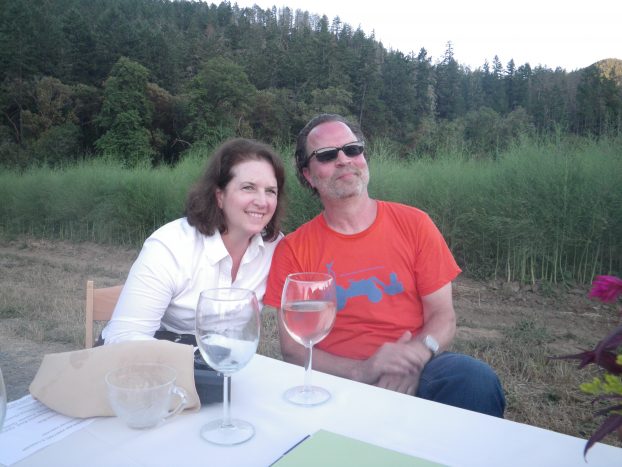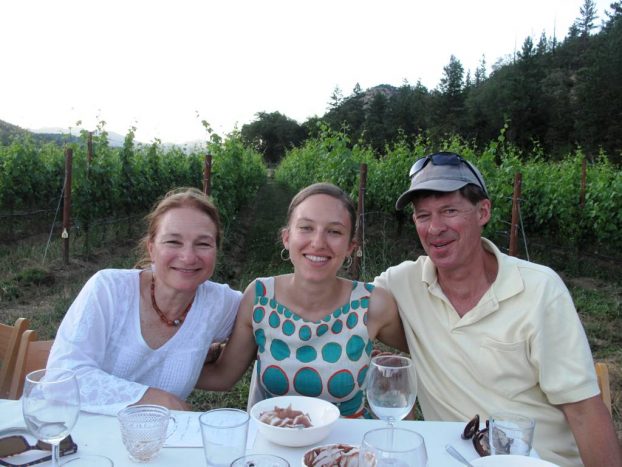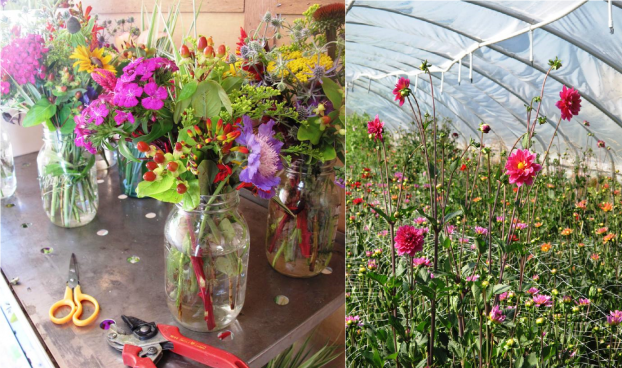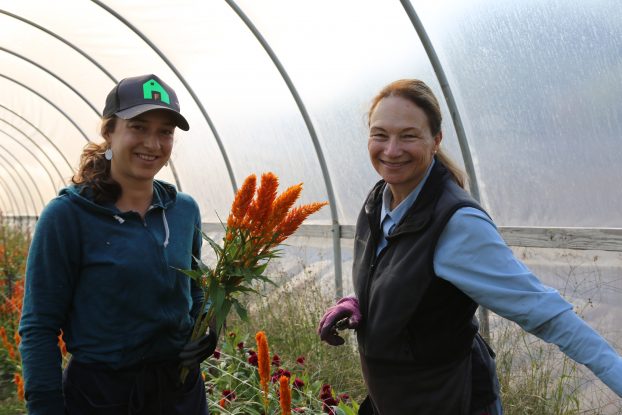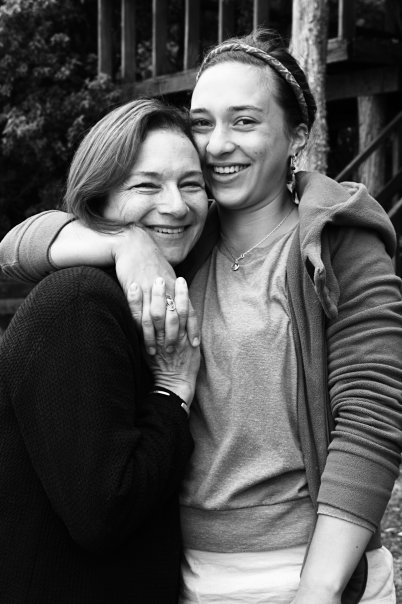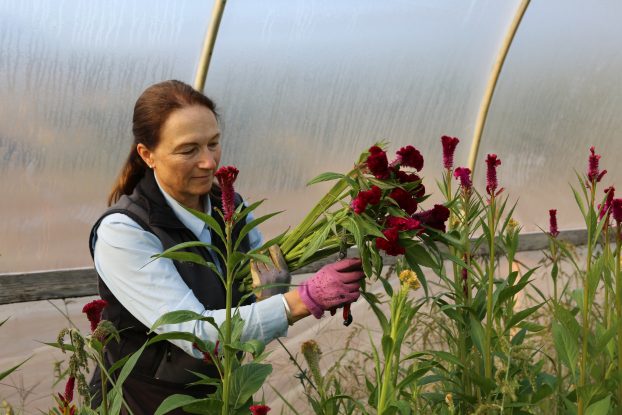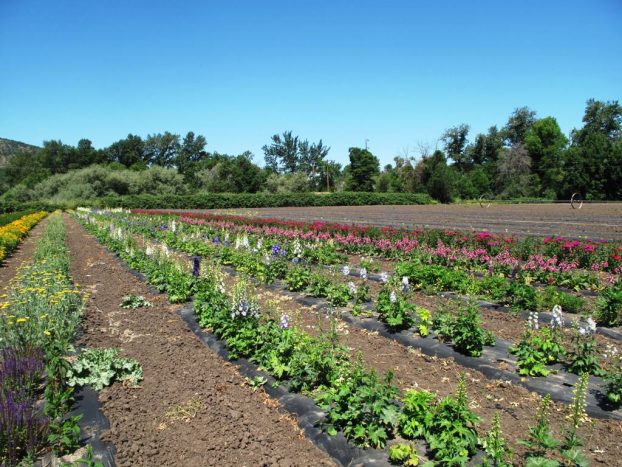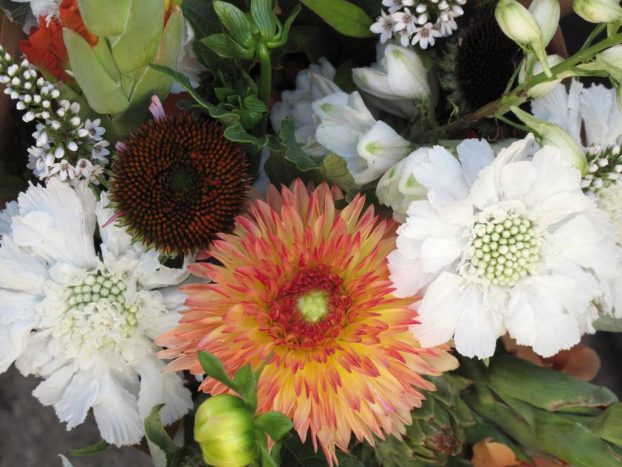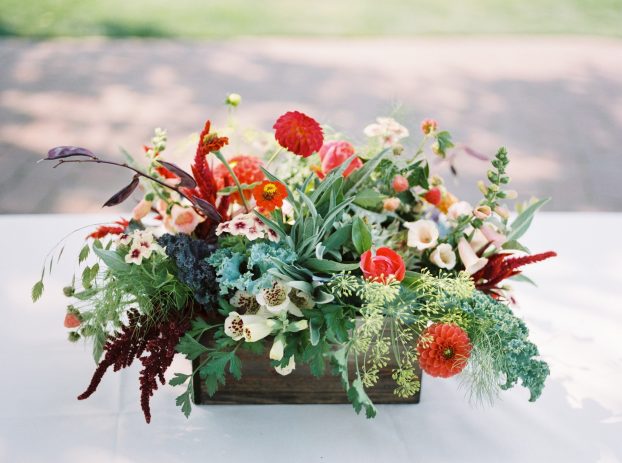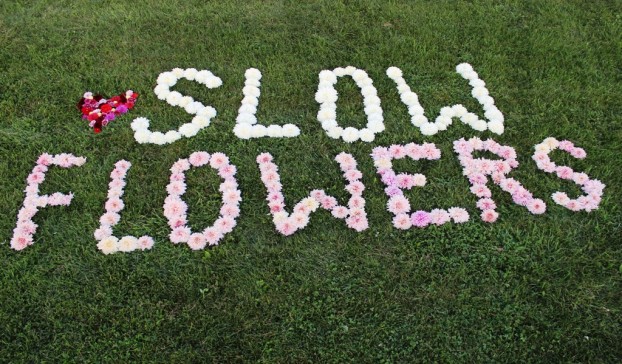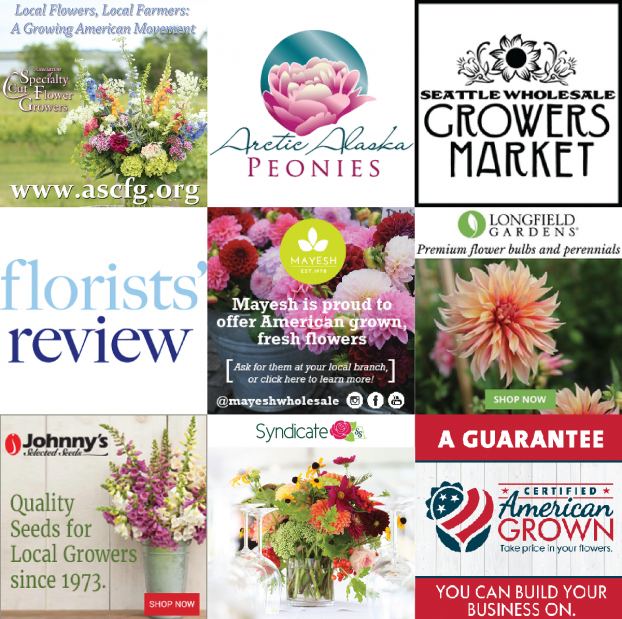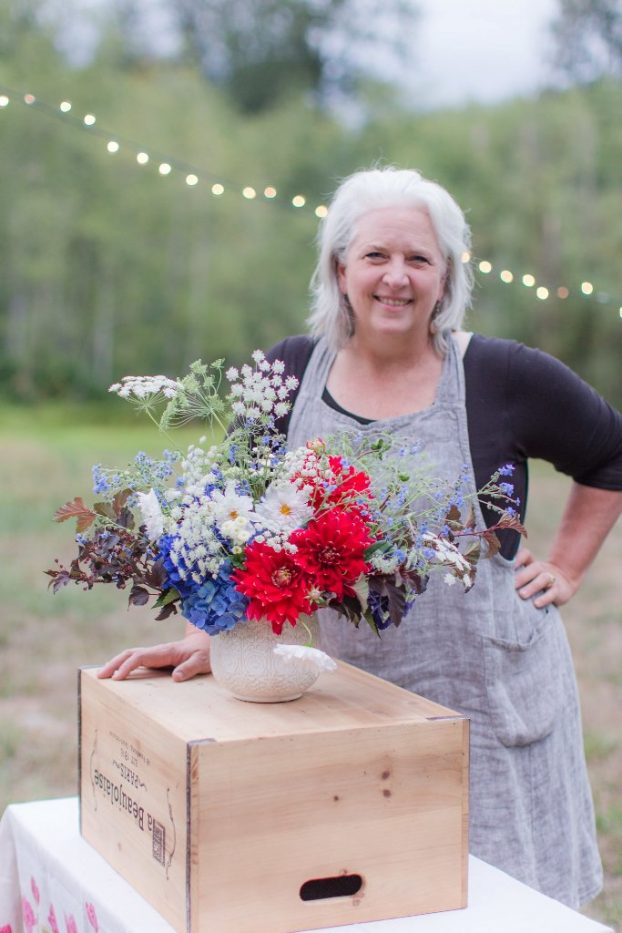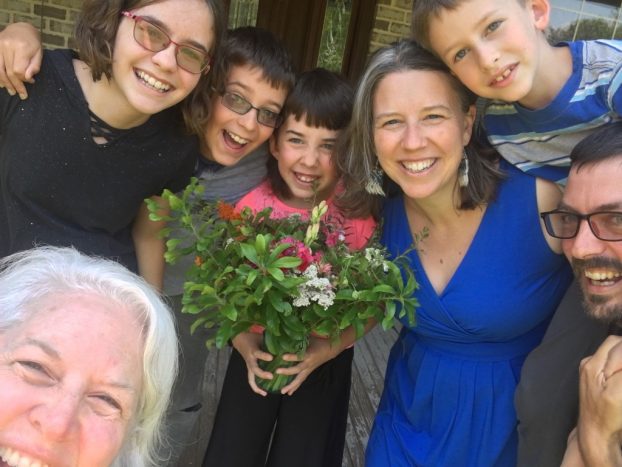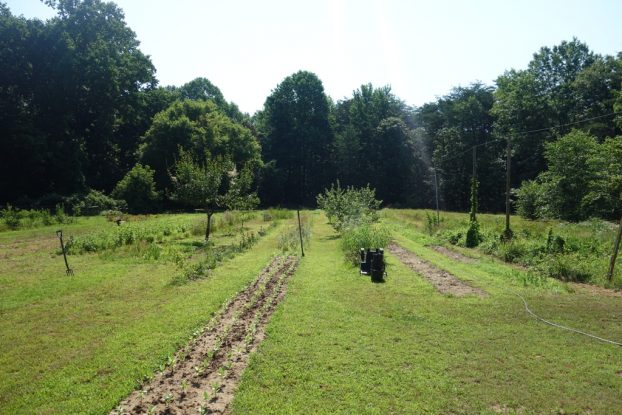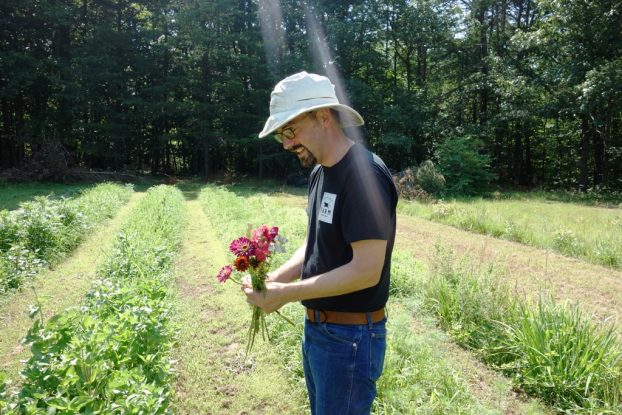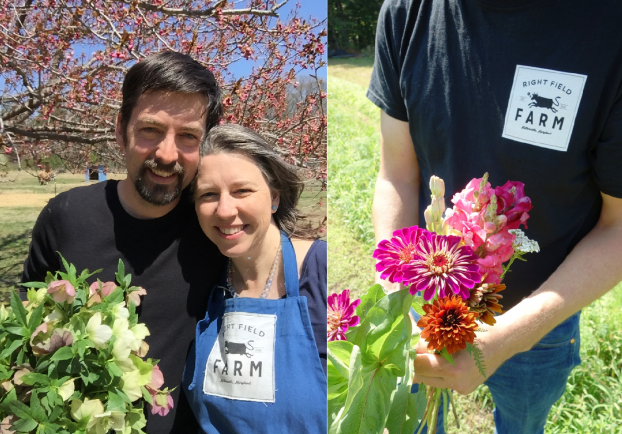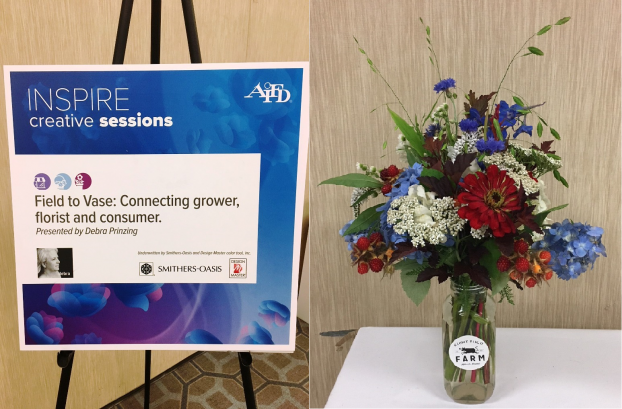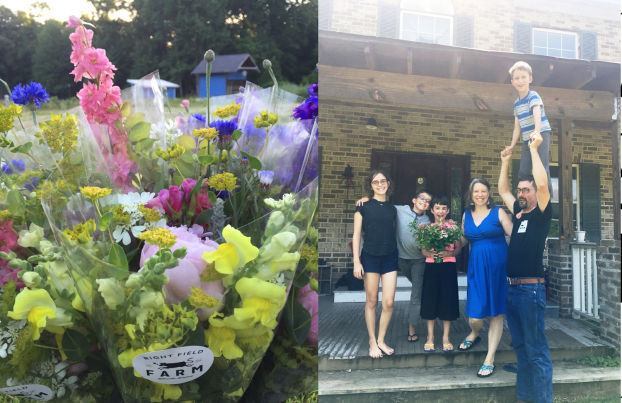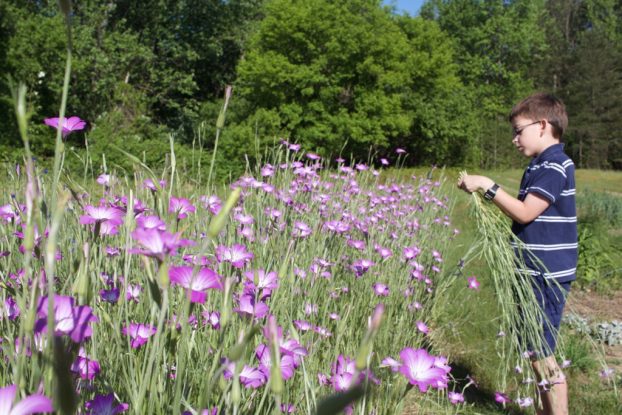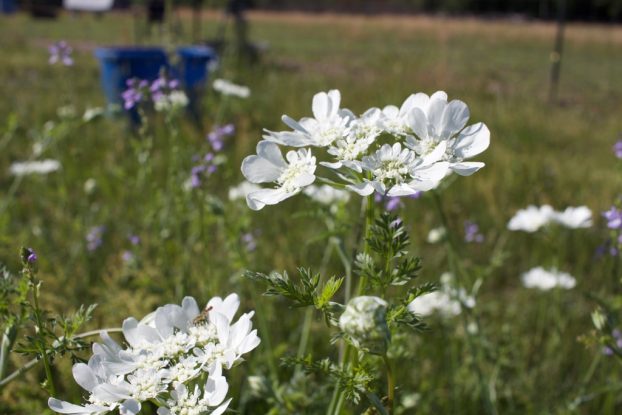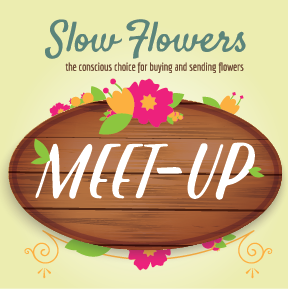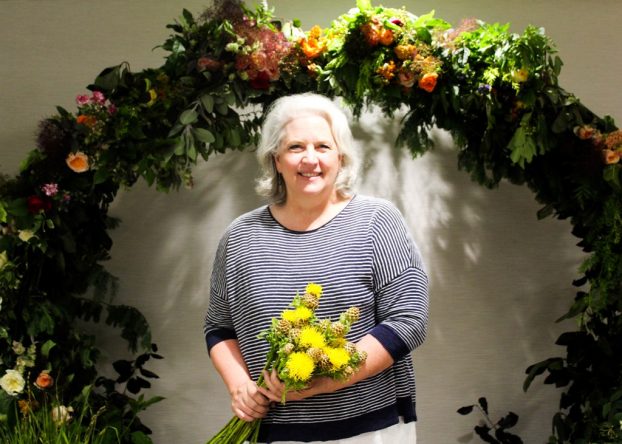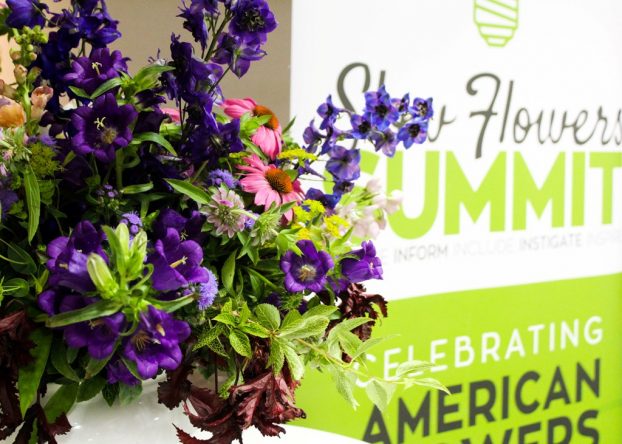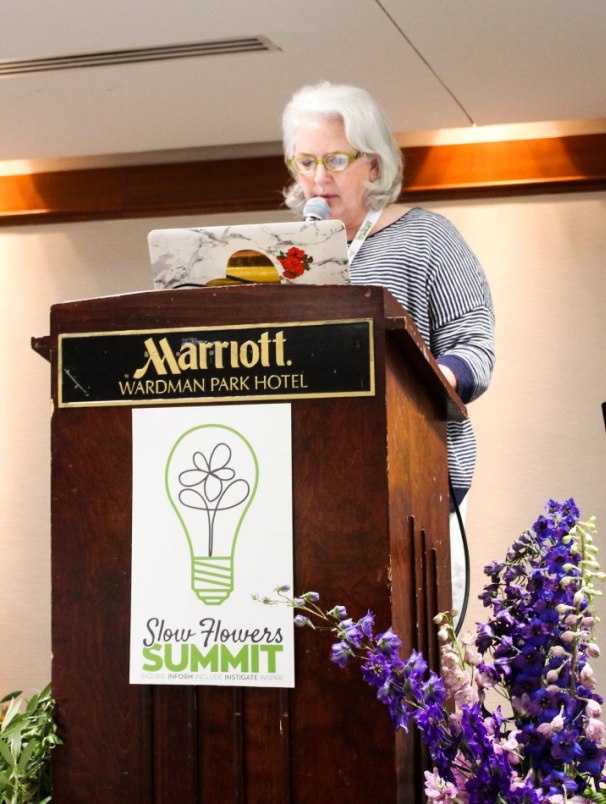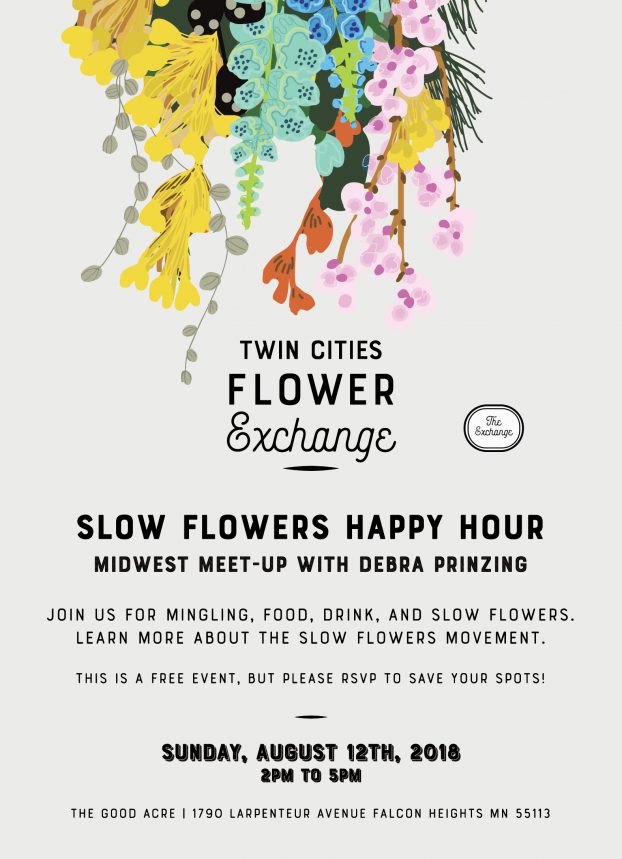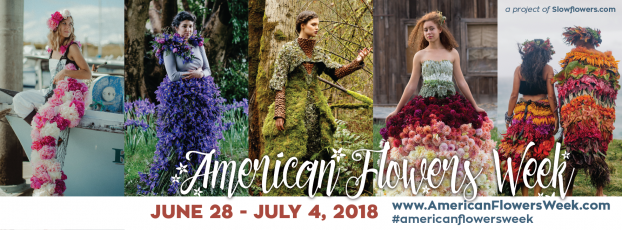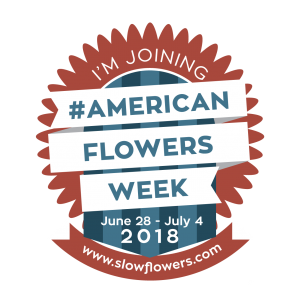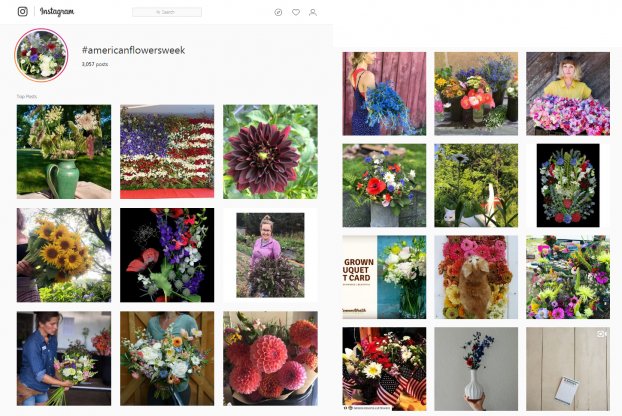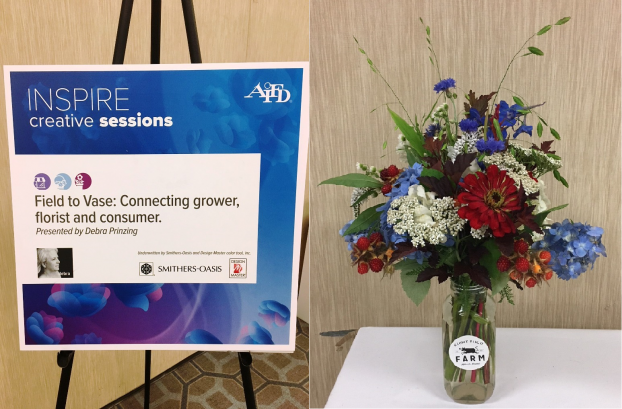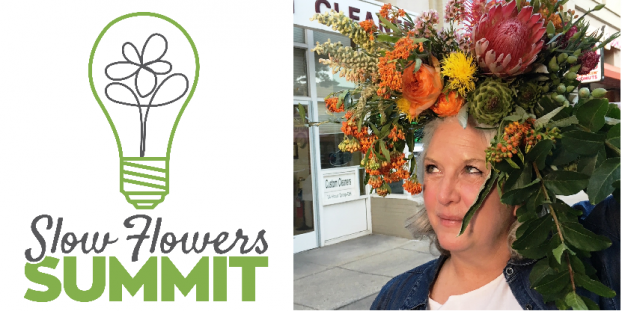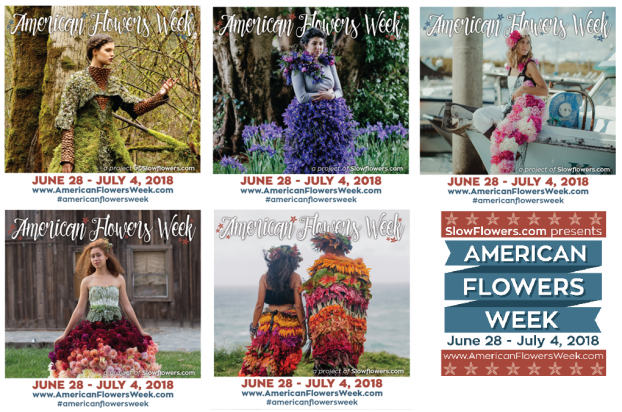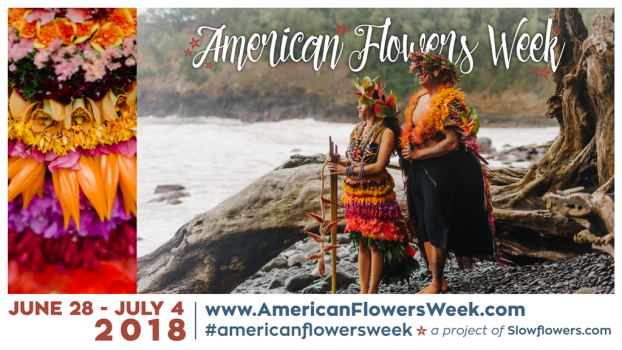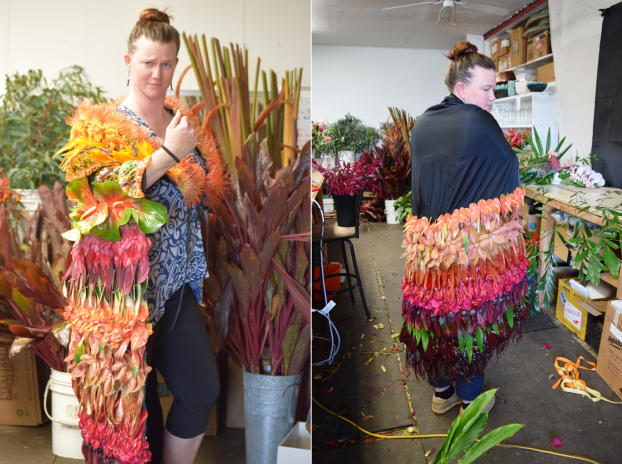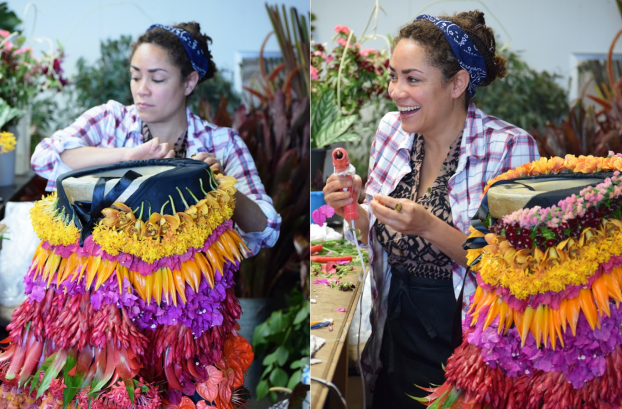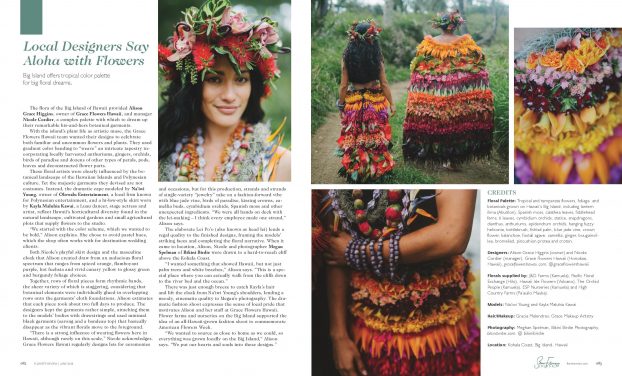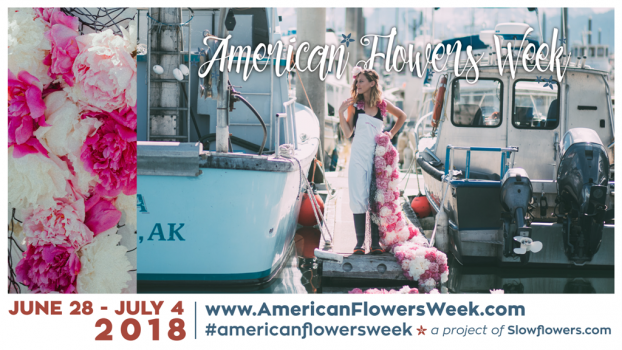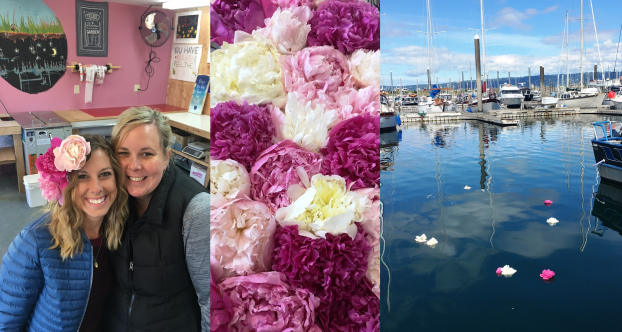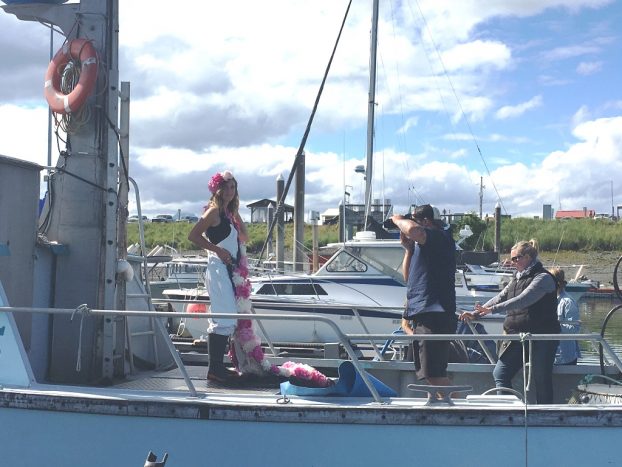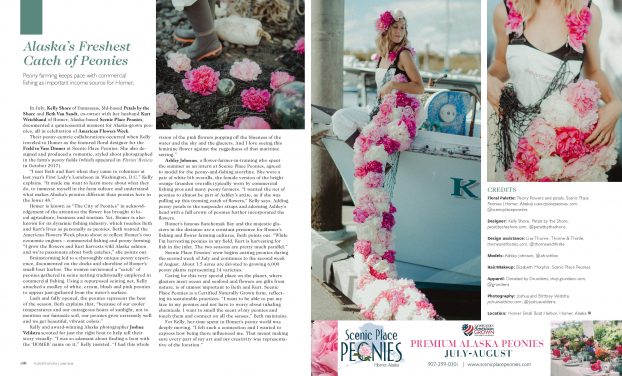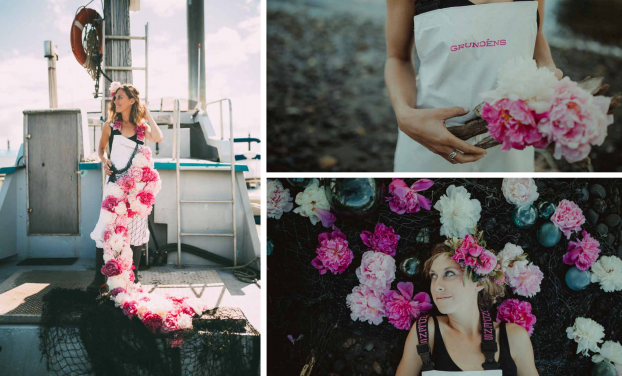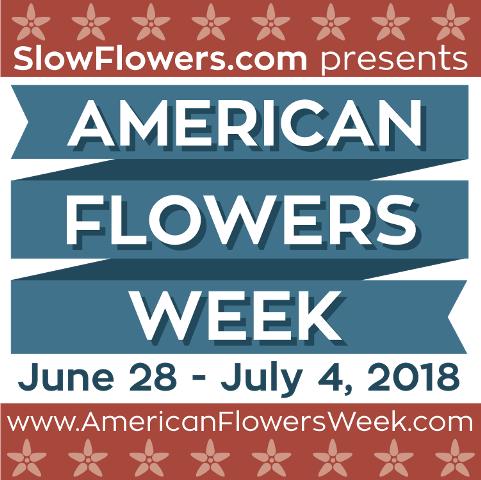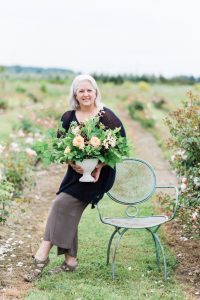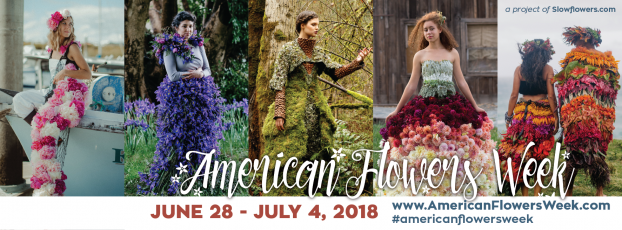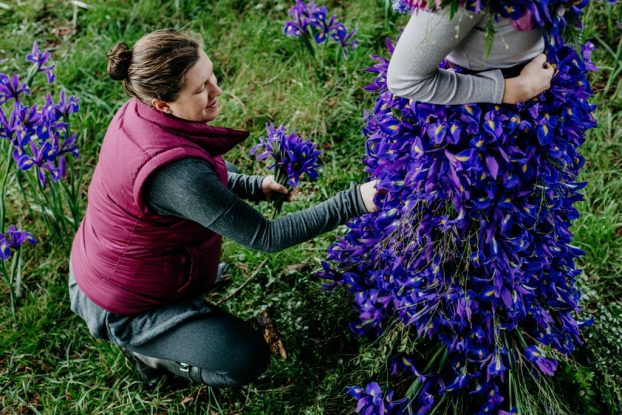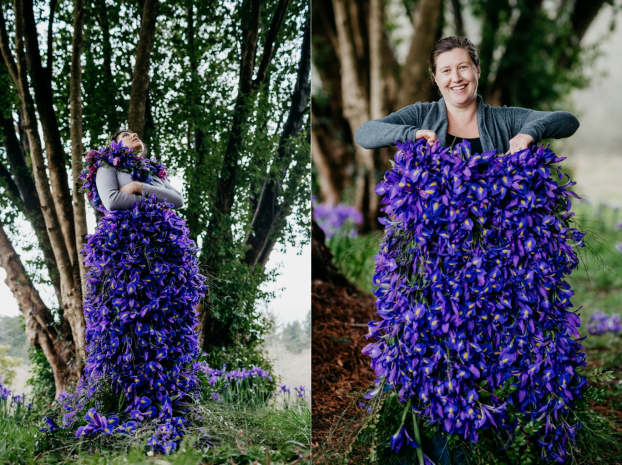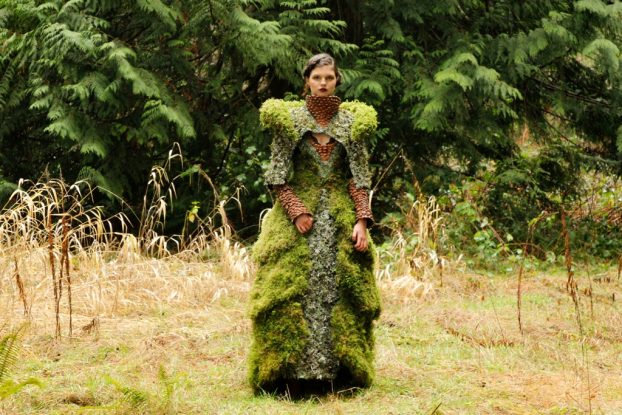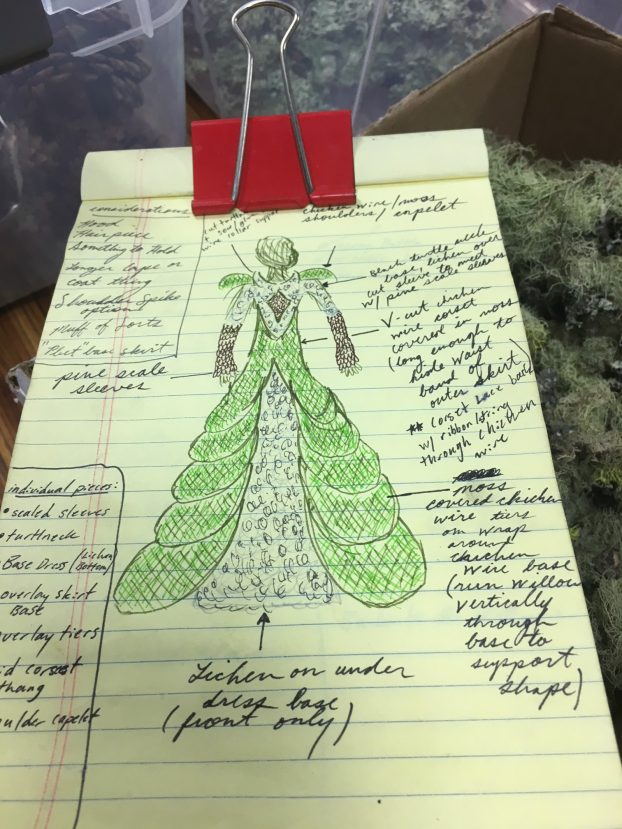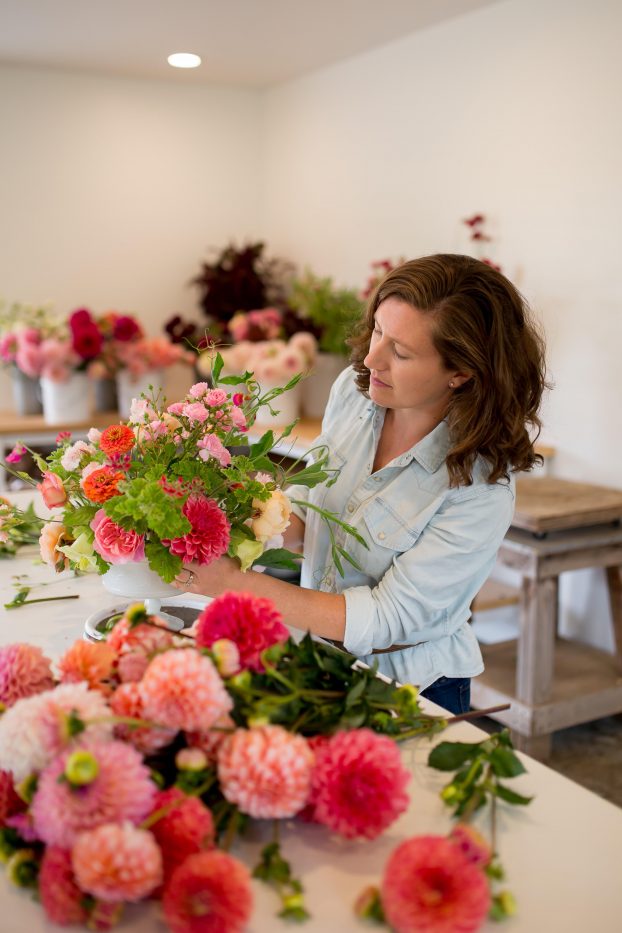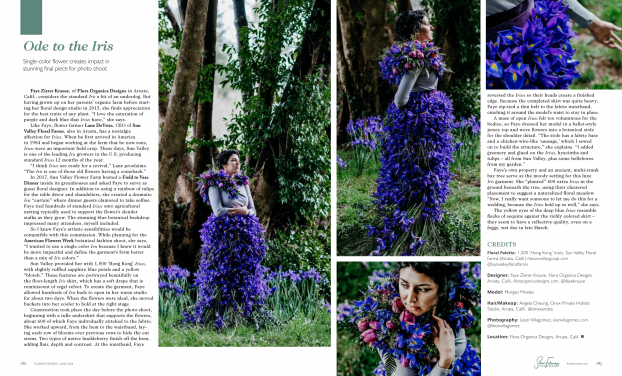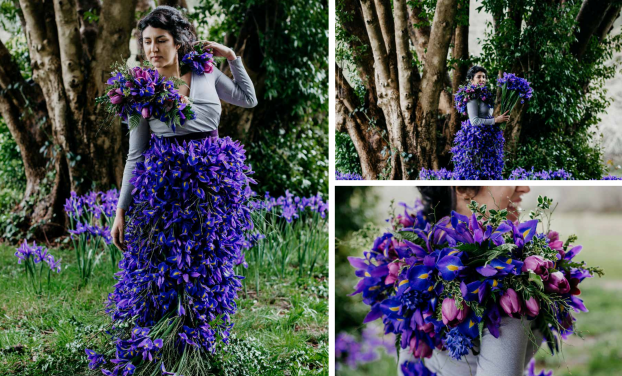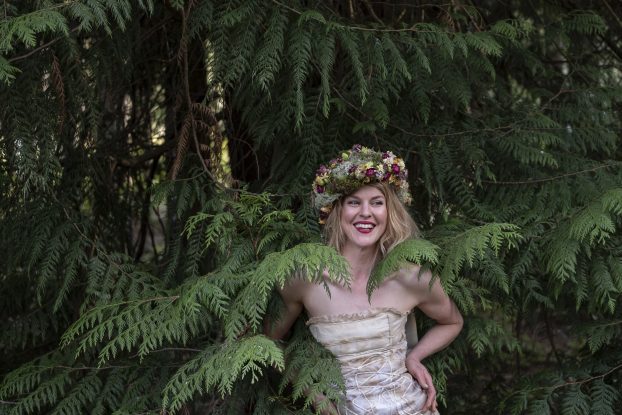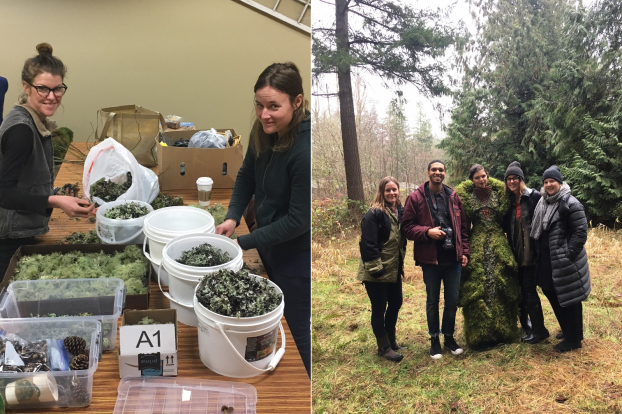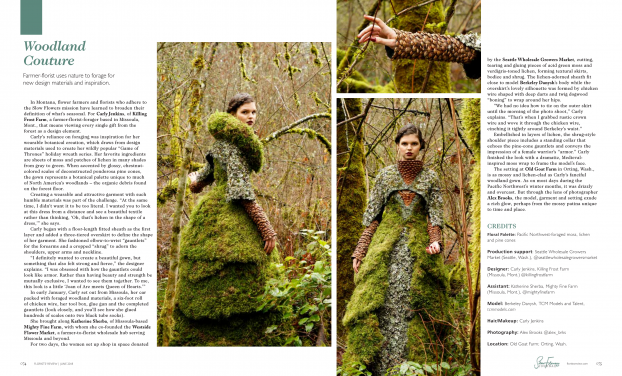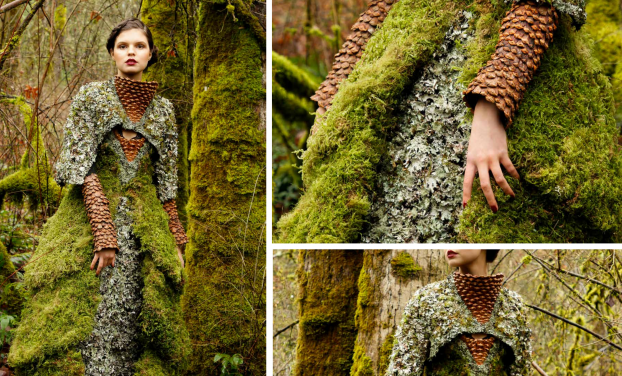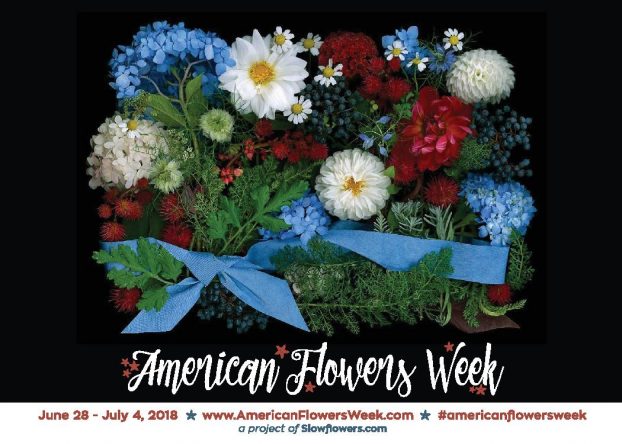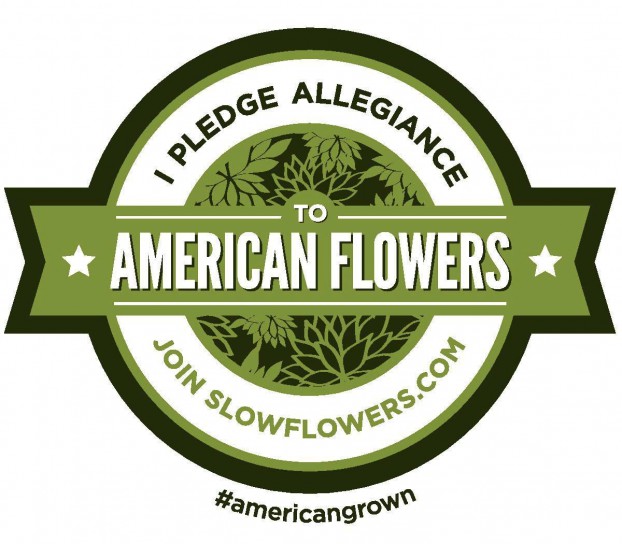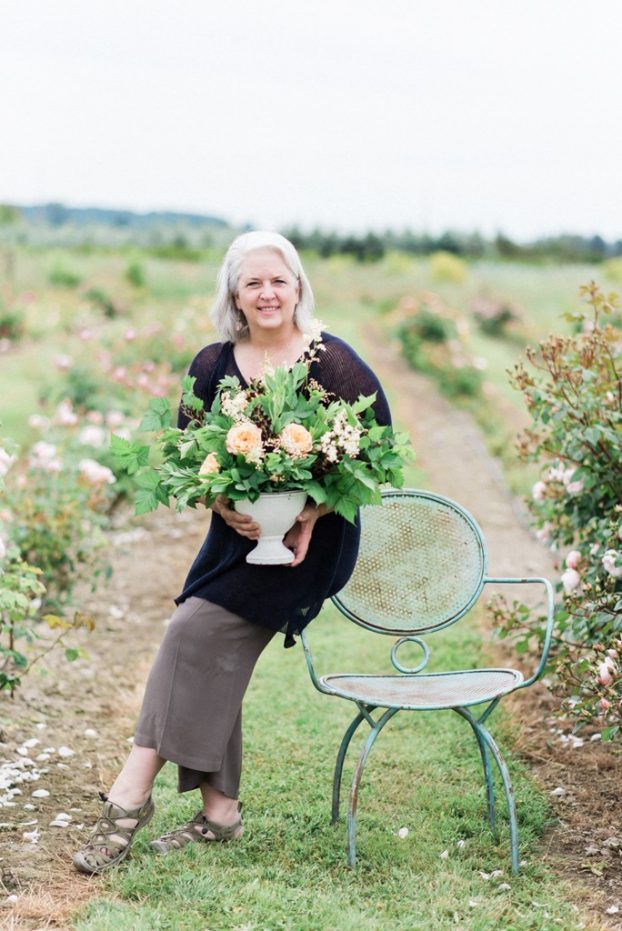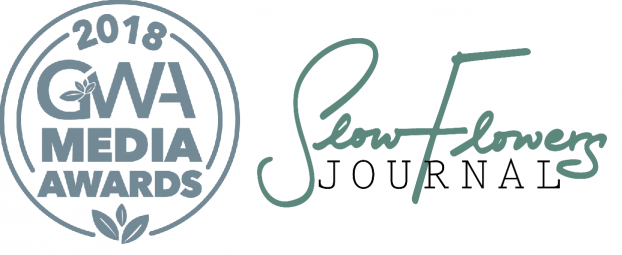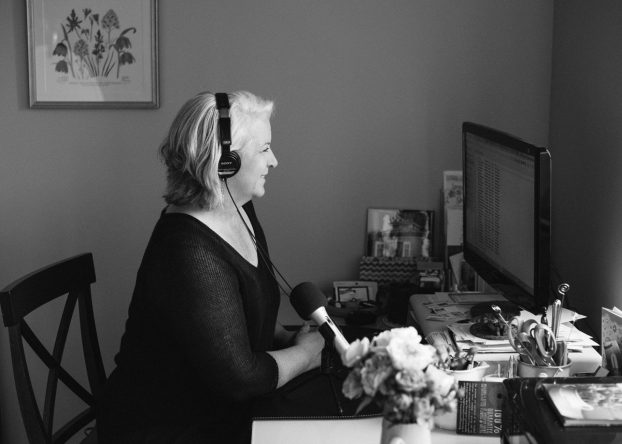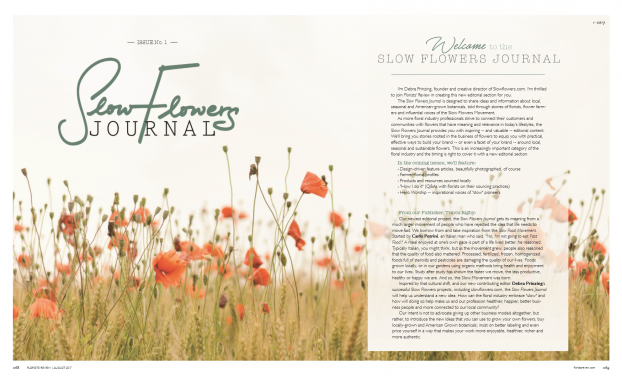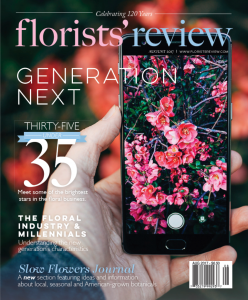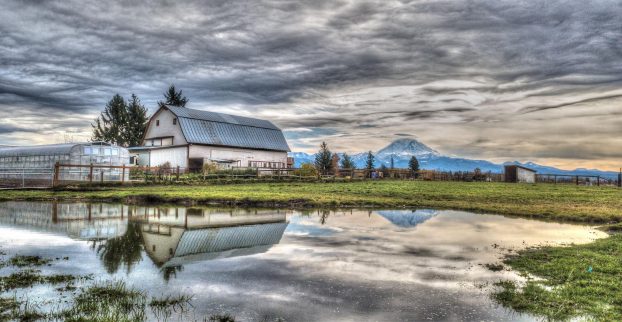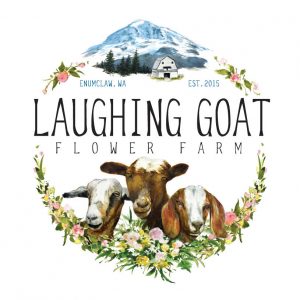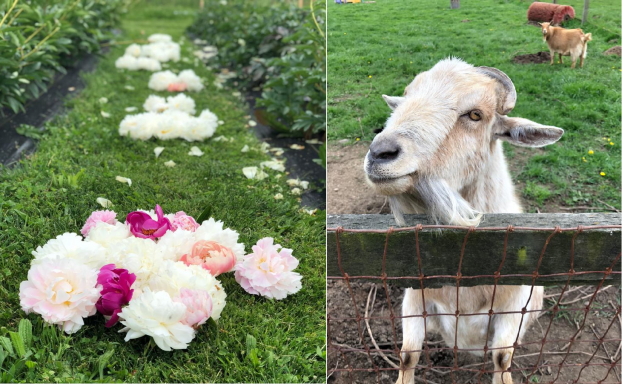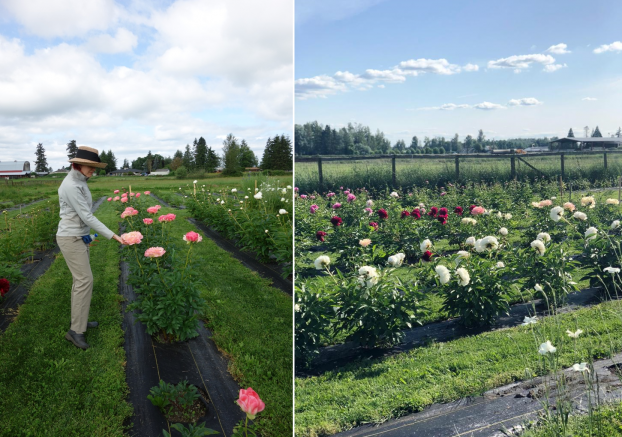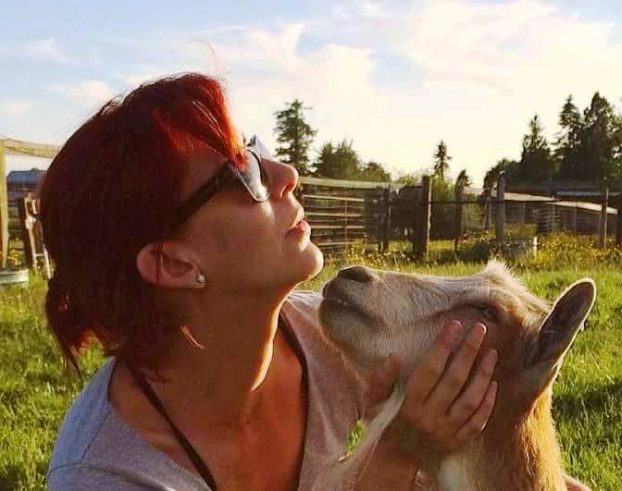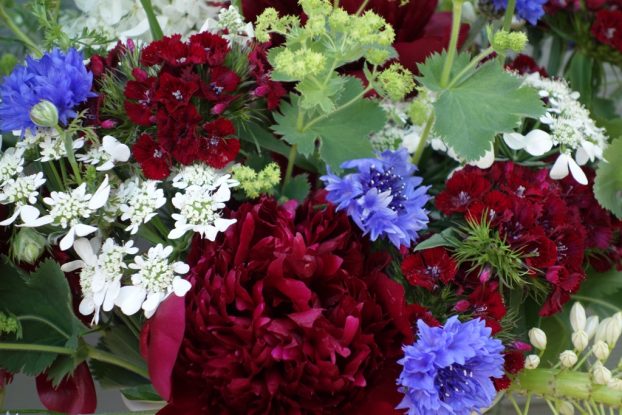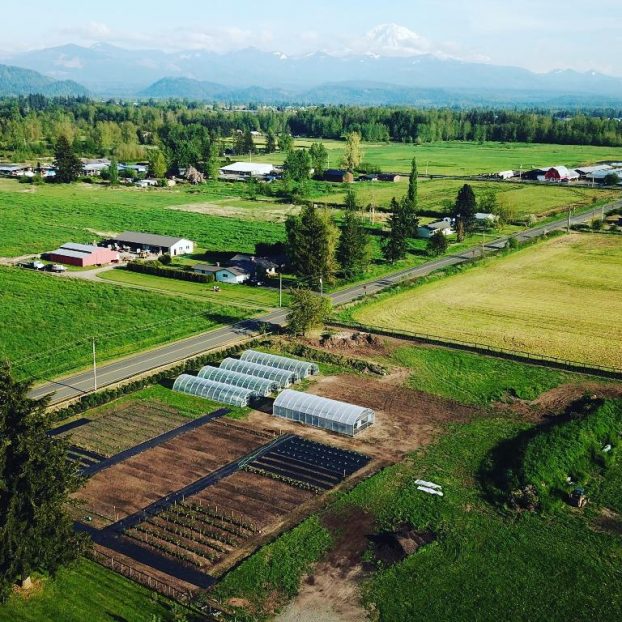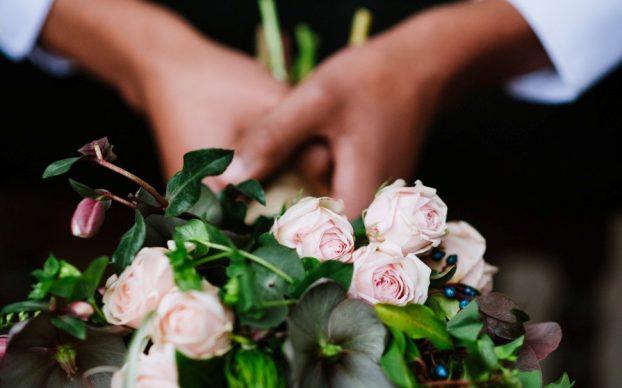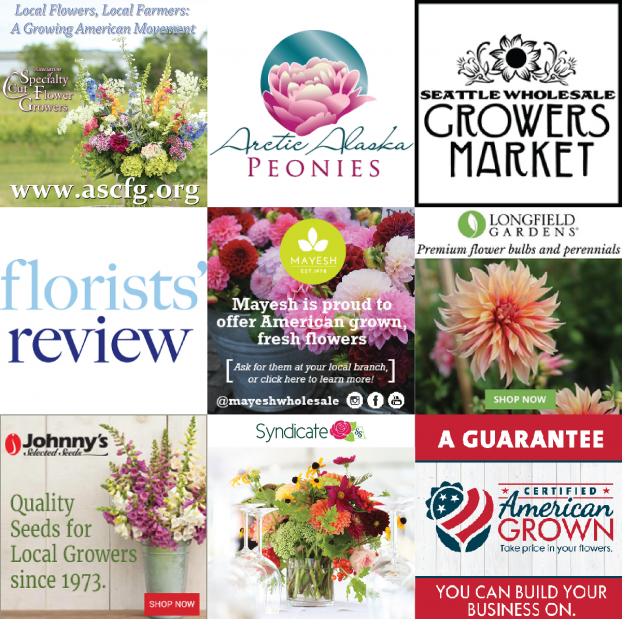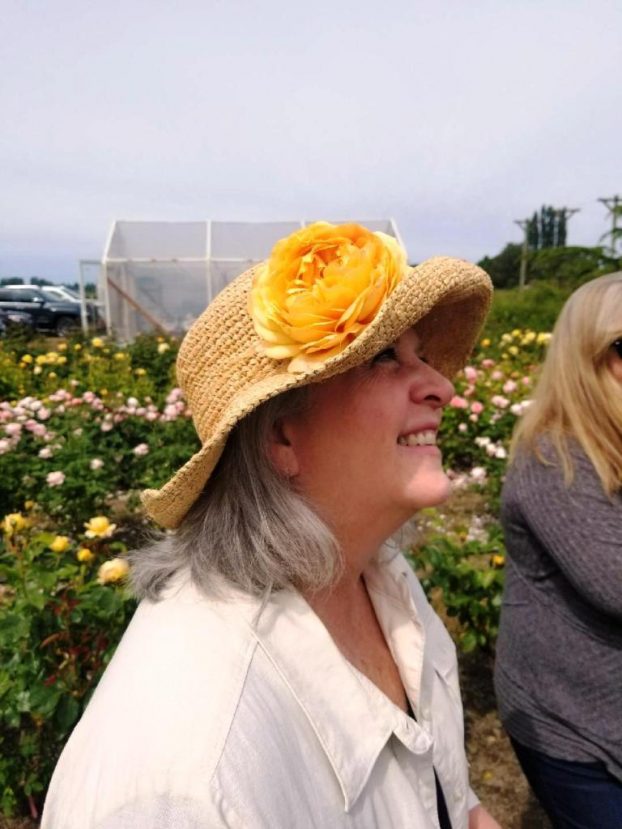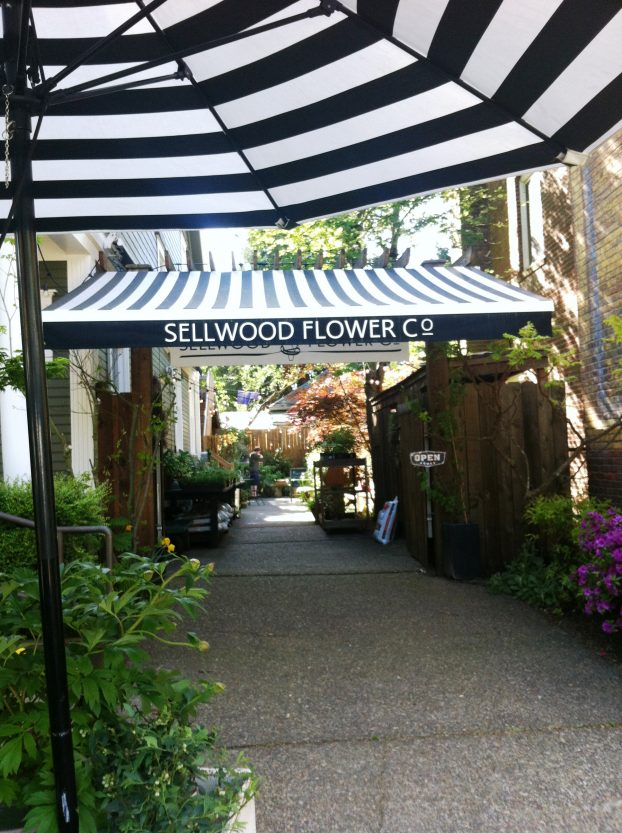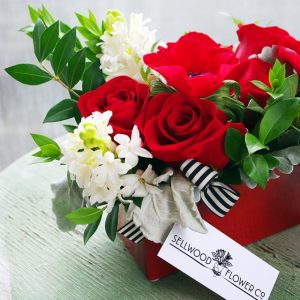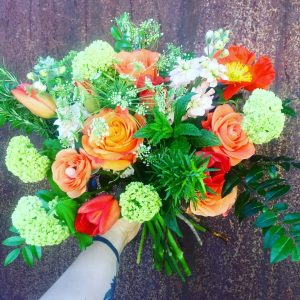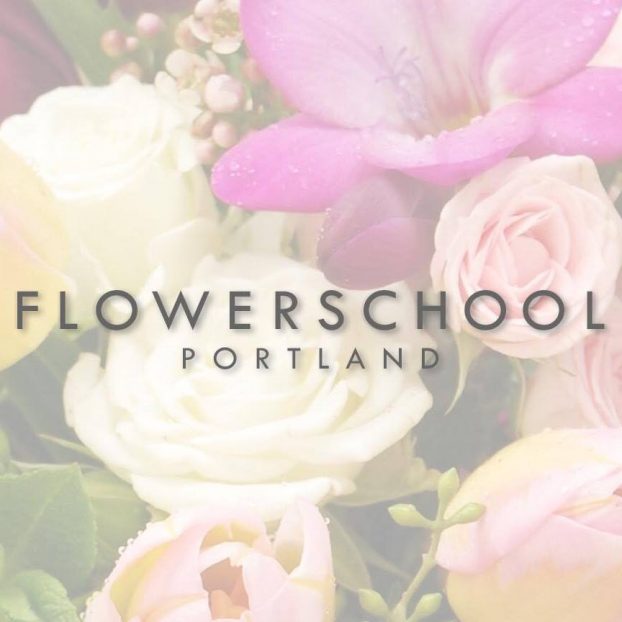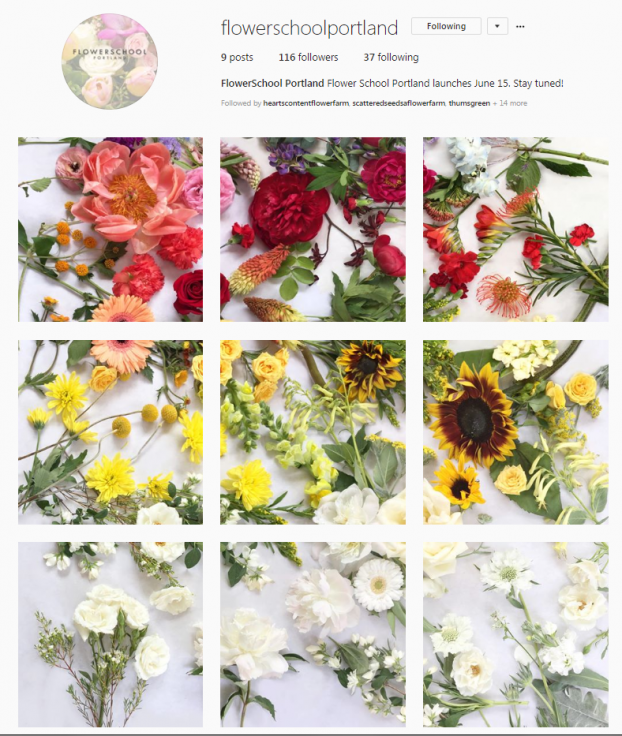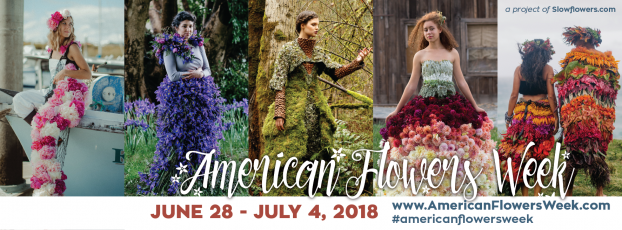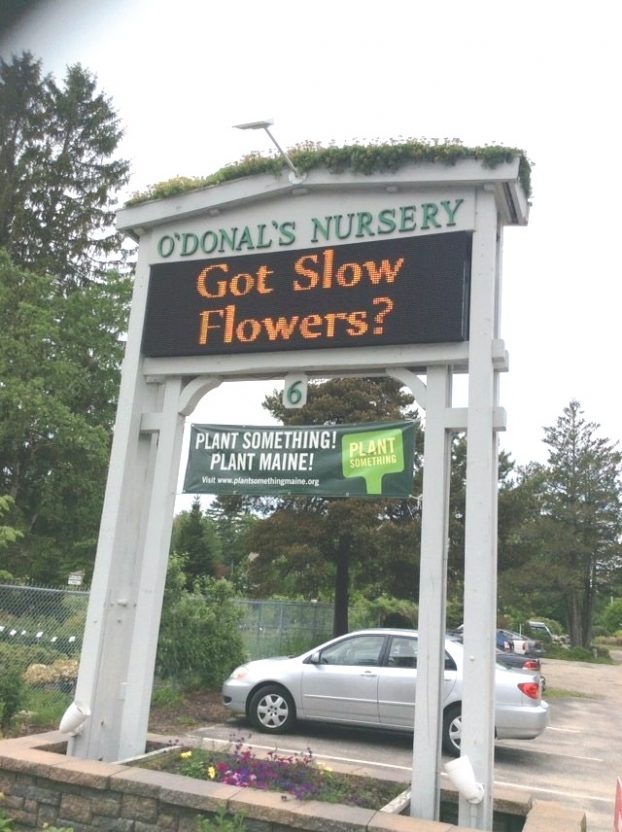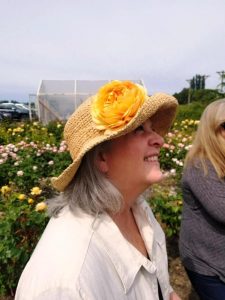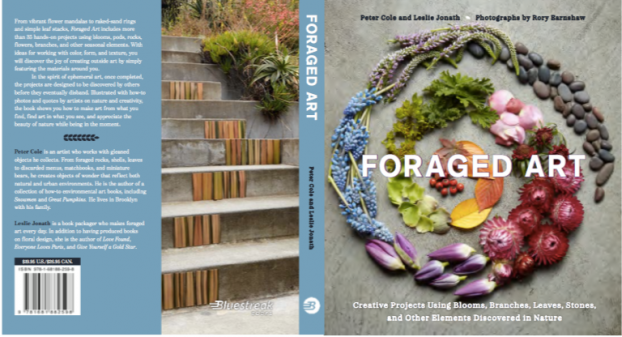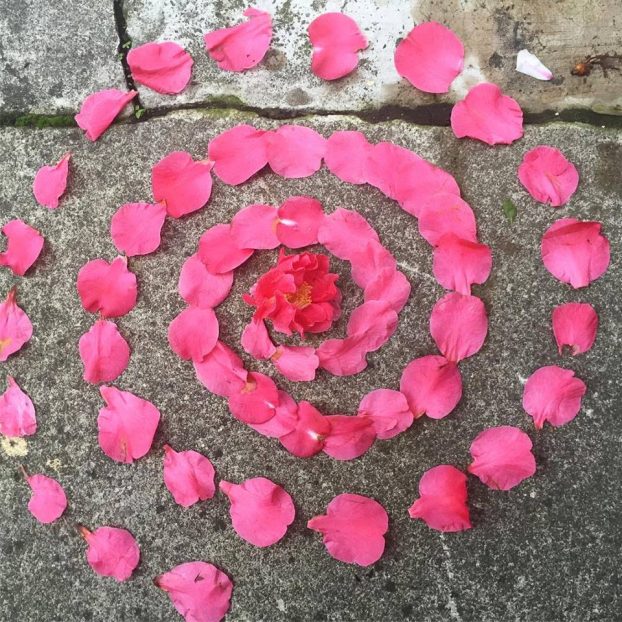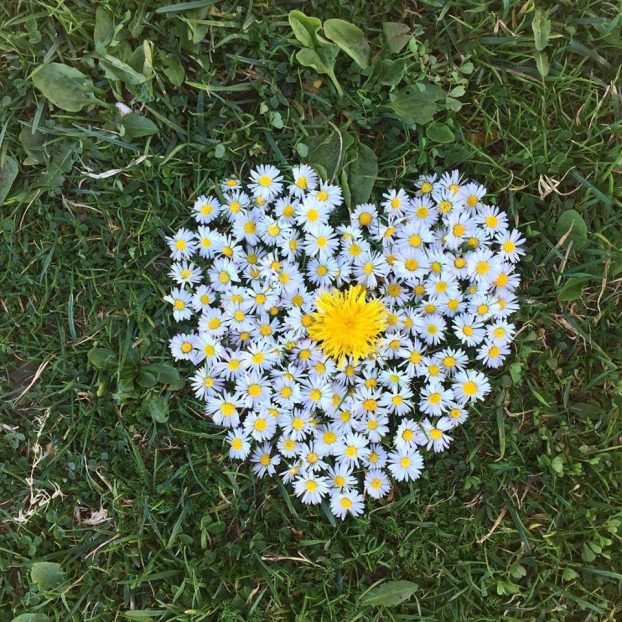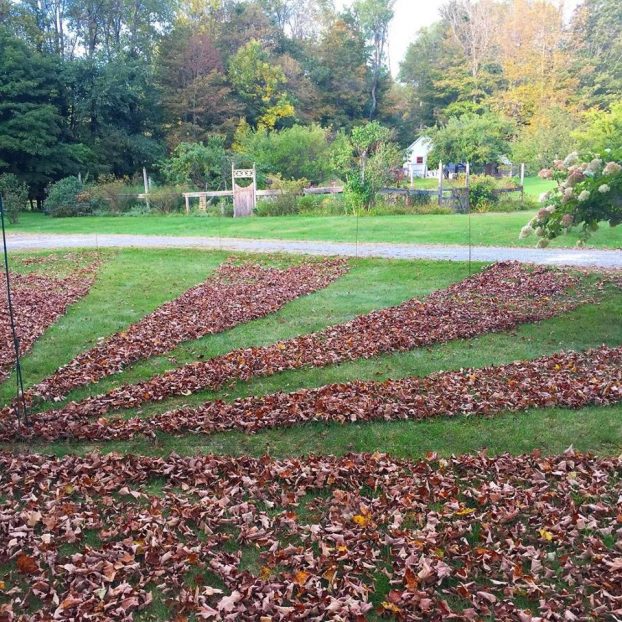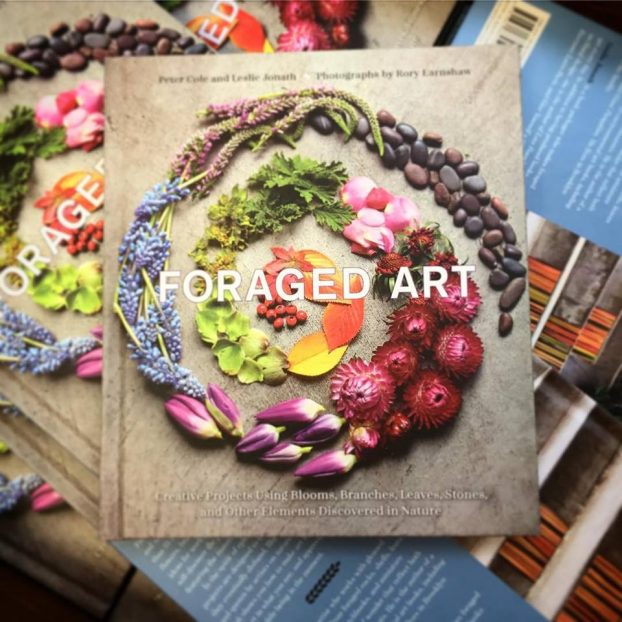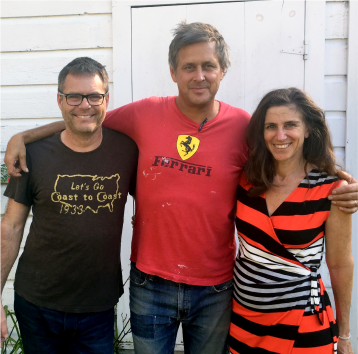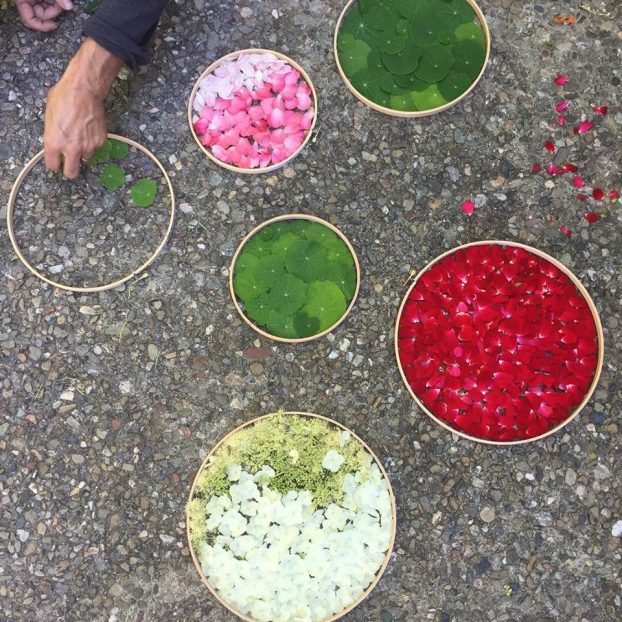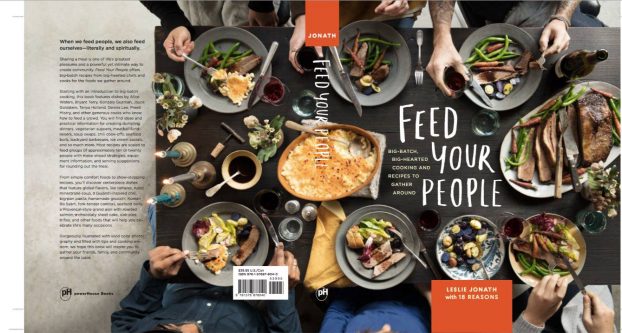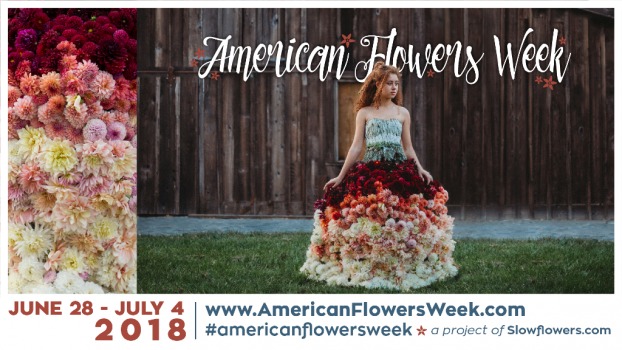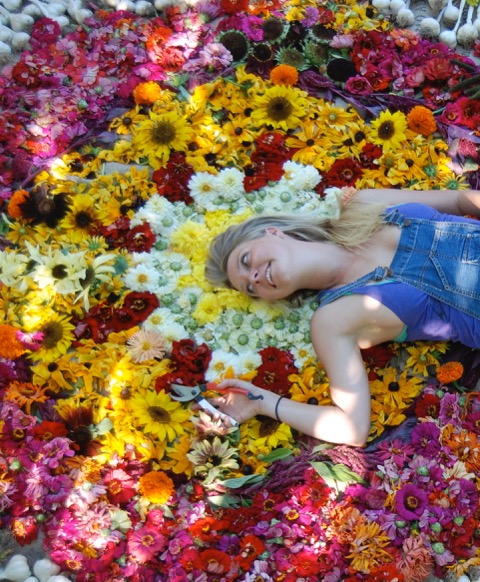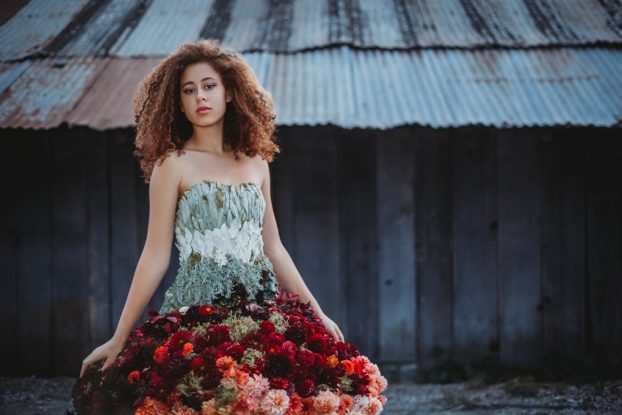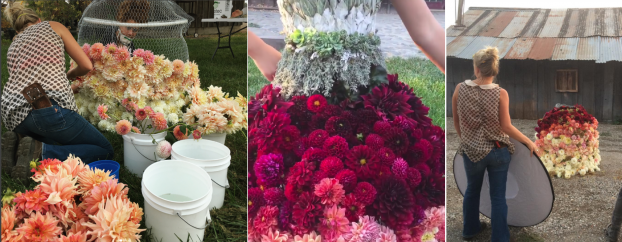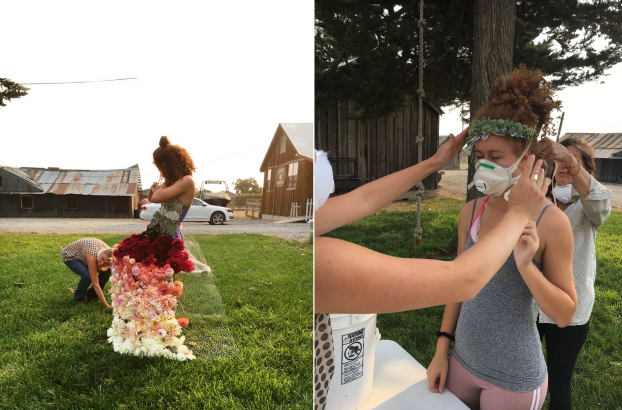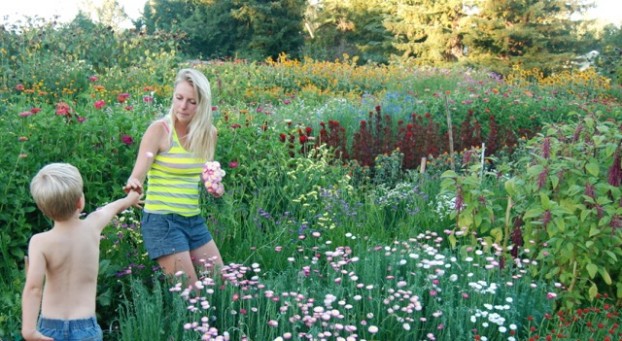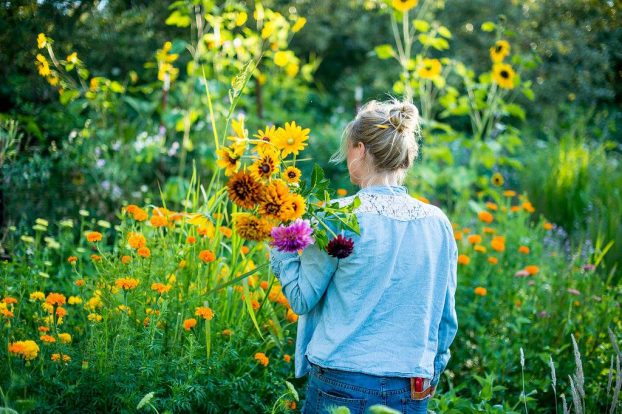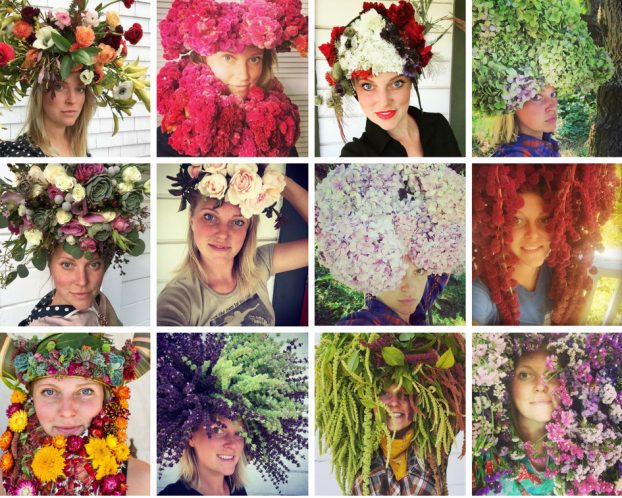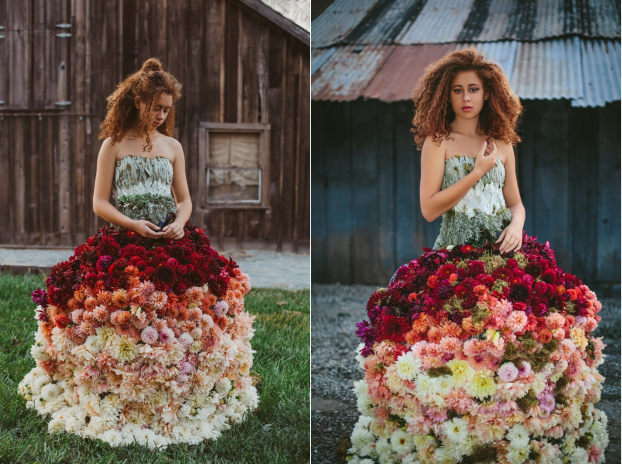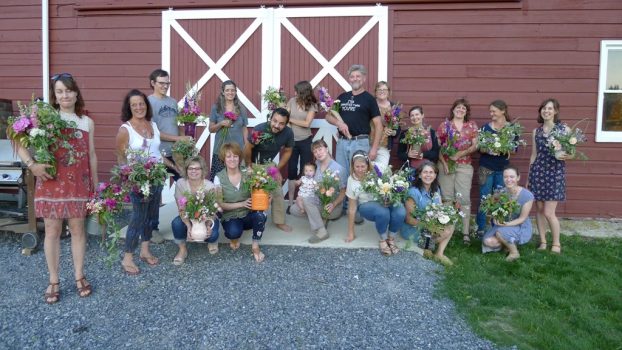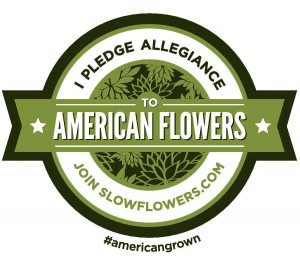Podcast: Play in new window | Download
Subscribe: Apple Podcasts | Podcast Index | RSS | More
 Today is the 5th anniversary of the Slow Flowers Podcast, and I thank you for tuning in.
Today is the 5th anniversary of the Slow Flowers Podcast, and I thank you for tuning in.
This has been a year of highlights in so many ways, as the Slow Flowers Message and Manifesto continue to resonate, not to mention build momentum, as an authentic, relatable — and legitimate topic in the floral industry.
In five years, since my first episode Number 100 on June 23, 2013, the Slow Flowers Podcast has been downloaded more than 340,000 times by listeners who have enjoyed 260 unique episodes.
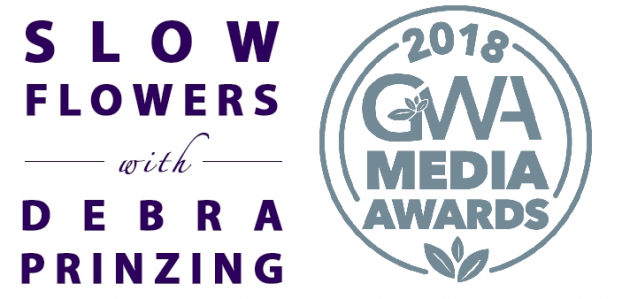 The Slow Flowers Podcast was recently recognized with a Silver Media Award from GWA: The Association for Garden Communicators, a group of my professional peers in green industry journalism.
The Slow Flowers Podcast was recently recognized with a Silver Media Award from GWA: The Association for Garden Communicators, a group of my professional peers in green industry journalism.
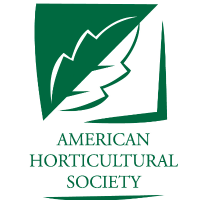 The American Horticultural Society recently honored me with the Frances Jones Poetker Award for significant contributions to floral design in publications, on the platform and to the public and this Podcast is a big part of that platform.
The American Horticultural Society recently honored me with the Frances Jones Poetker Award for significant contributions to floral design in publications, on the platform and to the public and this Podcast is a big part of that platform.
And we’ve just wrapped up the fourth annual American Flowers Week — the original domestic floral promotion holiday — as well as a very successful Slow Flowers Summit, which was held in Washington, D.C., during the heart of American Flowers Week.
Thank you all for joining me on this journey of advocacy and outreach as I shout aloud the message and importance of domestic, seasonal, local and sustainable flowers and the people who grow and design with them!
Five years ago in late June 2013, I was on location in Ashland, Oregon, working with James Baggett, then editor of Country Gardens magazine, and photographers Laurie Black and Mark King, to produce a farm-to-table story in Oregon’s wine country.
The trip enabled me to reconnect with Joan Thorndike of LeMera Gardens, a generous and brilliant flower farmer who is featured in the pages of The 50 Mile Bouquet.
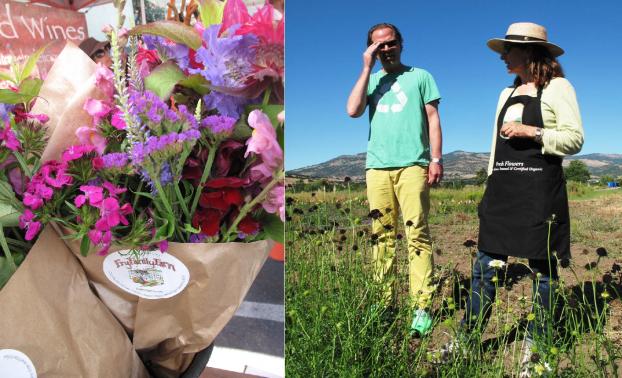
Joan (right) giving James Baggett a tour of her growing fields, 2013. The collaboration with Fry Family Farm appears (left) on one of the fresh Farmers’ Market bouquets.
Joan’s flowers adorned the table of that winery dinner we documented, and she welcomed James and me to visit her flower fields while we were there.
I enjoyed Joan’s hospitality further because she invited me to stay at her family home. That’s when I met her husband Dan and one of their two daughters, Camila.
Joan wanted to show me the Ashland Farmers’ Market, suggesting we walk through the urban woods along a local nature trail to reach the center of town. I asked her if I could bring my digital recorder and tape a segment for my brand new podcast. She gamely said yes. You can actually hear audio of our footsteps and breathing as we briskly walked to town.
We discussed local flowers, the Rogue River Valley’s sustainable agriculture scene, Joan’s own commitment to organic flowers and the origins and growth of Le Mera Gardens. Three hundred eighty people downloaded that original episode and (I hope) listened to it. From that seed of a beginning, the Slow Flowers Podcast has grown by leaps and bounds.
Today, we typically have more than 2,000 listeners per episode — and that means more of you around the globe are hearing the message, absorbing the wisdom, and being inspired by the people behind the flowers. People like Joan Thorndike.
Today, in recognition of her role in educating and influencing me and my work, I have invited Joan as a return guest to talk about all things local in floral design and floral agriculture.
I want to expose her story to a much larger audience than those who heard our conversation five years ago.
And how wonderful to add a bonus guest: Isabella Thorndike Church, Joan and Dan’s 2nd daughter, who is now co-farming with Joan at LeMera Gardens and leading her own studio called Jacklily Seasonal Floral Design.
Here’s a little bit more about both of these women:
Joan has been farming fresh cut flowers in Southern Oregon’s Rogue River Valley since 1992. She was born and raised in Santiago, Chile where flowers come in huge bundles, small posies, and fresh abundance.
In 2001 Le Mera Gardens and Fry Family Farms joined their worlds of flower farming, and have settled into growing and harvesting an ever expanding array of specialty cut flowers on 10 acres of open fields and greenhouses. Le Mera Gardens is featured in the groundbreaking book The 50 Mile Bouquet and is a proud charter member of the Slow Flowers movement celebrating American-grown local flowers.
Joan credits her “formal” education in commercial flower growing to the Association of Specialty Cut Flower Growers, its research publications, regional and national conferences, and to the writings of author and professor of horticulture Dr. Allan M. Armitage.
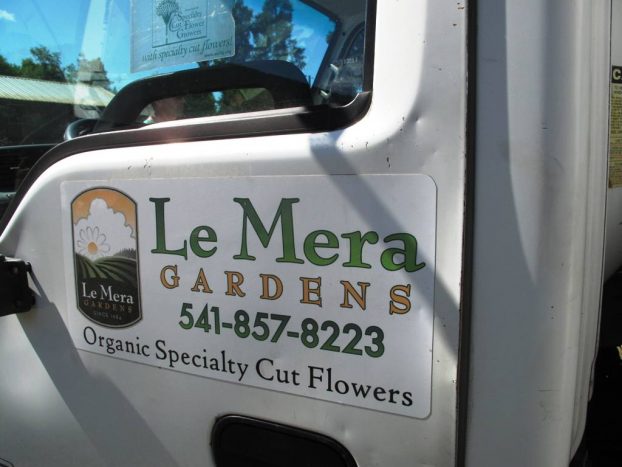
Le Mera Gardens is a charter member of Thrive (home of the Rogue Flavor Trademark), and is an online member of Local Harvest.
Joan’s two daughters, Camila and Isabella, spent their childhood summers seeking shade from 90-100ºF weather on the flower farm. Her husband Dan has been known to moonlight carrying flats of plants, and to provide Le Mera Gardens with many an odd shaped metal structure generously built by Medford Fabrication, his family’s metal fabrication business.
Le Mera’s fields, season-extending hoop houses, and propagation greenhouses are located in Talent, Phoenix and northwest Medford. All are managed and cultivated under Oregon Tilth Certified Organic, Bee Friendly and Salmon Safe farming practices.
Le Mera Gardens employs dozens of women and men who live in the immediate community. They seed, transplant, cultivate and harvest our flowers year after year.
As Joan writes on her web site: Le Mera Gardens is grateful for the loyal patronage of its Rogue Valley customers, most especially of area florists, designers and bridal parties. Their support allows us to manage, preserve and protect our Valley’s beautiful agricultural lands.
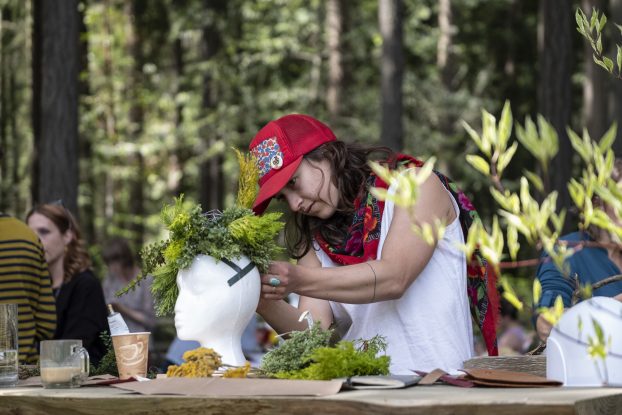
Heather Saunders captured this image of Isabella designing a wearable headpiece at the recent Whidbey Flower Workshop, where she studied with Susan McLeary and assisted Joseph Massie
Isabella Thorndike Church is the owner and lead designer of Jacklily Seasonal Floral Design. Jacklily is a fine art floral studio located in the rolling hills of Southern Oregon’s Rogue Valley. Working with fresh, locally-grown and consciously-sourced material, Jacklily creates lush designs. As Isabella writes on her web site:
“Everything I do begins in the field. There, the colors and textures of the Rogue Valley arrange themselves according to the season. I believe that local, seasonal flowers that are grown without pesticides or chemical fertilizers are healthy for us and for the earth. The flowers at your wedding or event should be as unique as you are. From bridal bouquets to full wedding or event design, the locally grown materials I work with are carefully selected and arranged to bring your floral vision to life. She declares: Floral design is an agricultural act.”
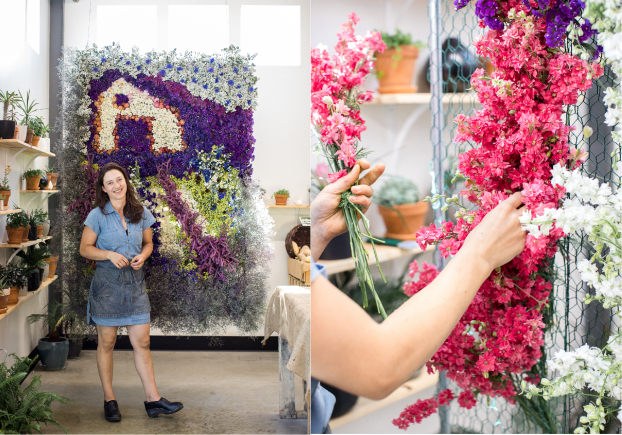
Isabella Thorndike Church of Jacklily Seasonal Floral Design, with the botanical artwork (featuring Le Mera Gardens’ logo) in celebration of American Flowers Week 2018.
I know you’ll love meeting this mom-and-daughter duo as much as I have.
Find and meet Joan and Isabella at these social places.
Find Le Mera Gardens on Facebook
Follow Le Mera Gardens on Instagram
See Le Mera Gardens on Pinterest
Find Jacklily Seasonal Floral Design on Instagram
Thank you so much for joining me today. I’ve been working closely with a core team of advisors to fine-tune our branding and messaging. So let me share the updated Slow Flowers’ Mission:
To change the flower sourcing practices of consumers and professionals through outreach and education that highlights the benefits of local, seasonal and domestic floral agriculture.
And here is our Brand Promise:
Inspiring the floral industry and its consumers to embrace local, seasonal and sustainable flowers
I hope both of these statements resonate with you! You’ll be seeing and hearing more about the maturing of the Slow Flowers brand, mission and movement in the coming months.
This is an ever-evolving exercise as I gain clarity about my personal calling and about what drives me to continue building this movement. I am grateful to all you — our entire community of flower farmers and floral designers who together define the Slow Flowers Movement.
As our cause gains more supporters and more passionate participants who believe in the importance of the American cut flower industry, the momentum is contagious.
I know you feel it, too. I value your support and invite you to show your thanks and with a donation to support my ongoing advocacy, education and outreach activities. You can find the donate button in the column to the right.
The Slow Flowers Podcast has been downloaded more than 340,000 times by listeners like you. Thank you for listening, commenting and sharing – it means so much.
Thank you to our sponsors who have supported Slow Flowers and all our programs. They are:
Florists’ Review magazine. I’m delighted to serve as Contributing Editor for Slow Flowers Journal, found in the pages of Florists’ Review. It’s the leading trade magazine in the floral industry and the only independent periodical for the retail, wholesale and supplier market. Subscribe here.
Arctic Alaska Peonies, a cooperative of passionate family farms in the heart of Alaska providing bigger, better peony flowers during the months of July and August. Visit them today at arcticalaskapeonies.com
Seattle Wholesale Growers Market, a farmer-owned cooperative committed to providing the very best the Pacific Northwest has to offer in cut flowers, foliage and plants. The Growers Market’s mission is to foster a vibrant marketplace that sustains local flower farms and provides top-quality products and service to the local floral industry. Find them at seattlewholesalegrowersmarket.com
Longfield Gardens provides home gardeners with high quality flower bulbs and perennials. Their online store offers plants for every region and every season, from tulips and daffodils to dahlias, caladiums and amaryllis. Visit them at longfield-gardens.com.
Syndicate Sales, an American manufacturer of vases and accessories for the professional florist. Look for the American Flag Icon to find Syndicate’s USA-made products and join the Syndicate Stars loyalty program at syndicatesales.com.
Johnny’s Selected Seeds, an employee-owned company that provides our industry the best flower, herb and vegetable seeds — supplied to farms large and small and even backyard cutting gardens like mine. Check them out at johnnysseeds.com.
Association of Specialty Cut Flower Growers. Formed in 1988, ASCFG was created to educate, unite, and support commercial cut flower growers. It mission is to help growers produce high-quality floral material, and to foster and promote the local availability of that product. Learn more at ascfg.org
Mayesh Wholesale Florist. Family-owned since 1978, Mayesh is the premier wedding and event supplier in the U.S. and we’re thrilled to partner with Mayesh to promote local and domestic flowers, which they source from farms large and small around the U.S. Learn more at mayesh.com.
Certified American Grown Flowers. The Certified American-Grown program and label provide a guarantee for designers and consumers on the source of their flowers. Take pride in your flowers and buy with confidence, ask for Certified American Grown Flowers. To learn more visit americangrownflowers.org.
I’m Debra Prinzing, host and producer of the Slow Flowers Podcast.
Next week, you’re invited to join me in putting more American grown flowers on the table, one vase at a time. And If you like what you hear, please consider logging onto iTunes and posting a listener review.
The content and opinions expressed here are either mine alone or those of my guests alone, independent of any podcast sponsor or other person, company or organization.
The Slow Flowers Podcast is engineered and edited by Andrew Brenlan. Learn more about his work at soundbodymovement.com. Special thanks to Stephen Yaussi.









